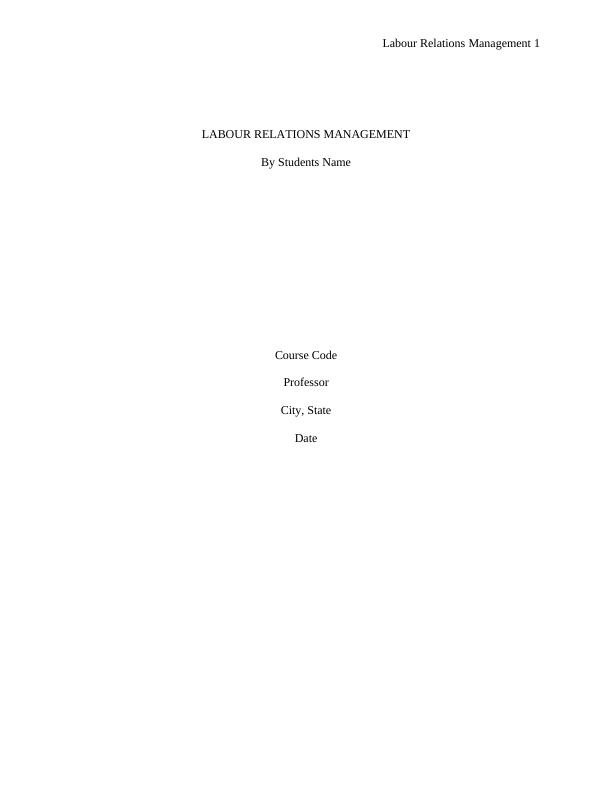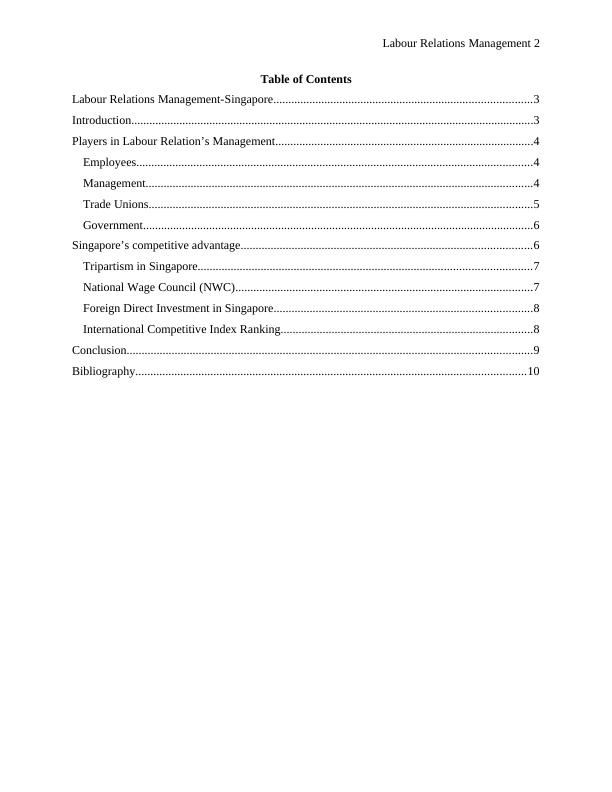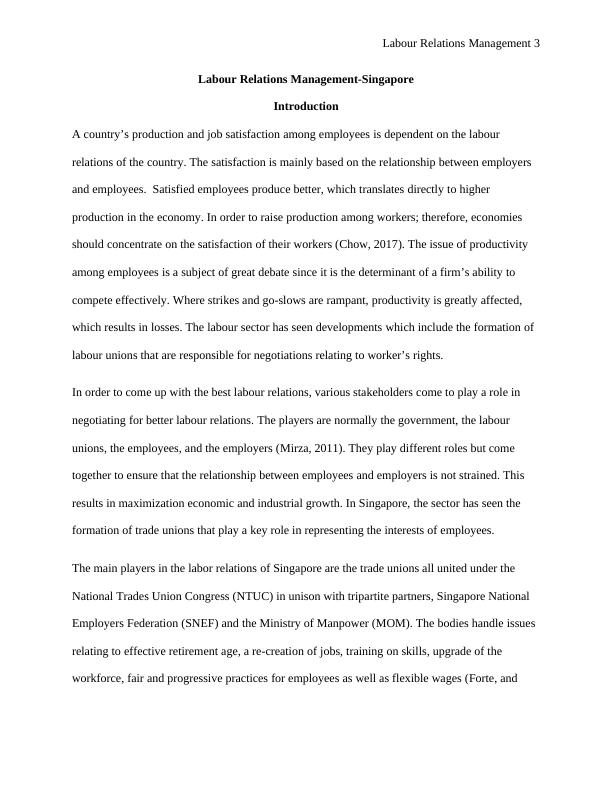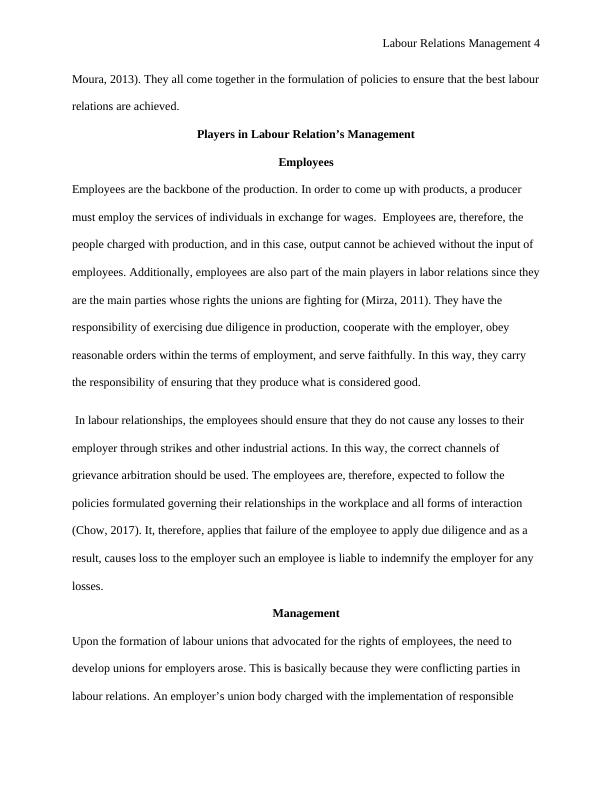Labour Relations Management in Singapore
11 Pages2355 Words315 Views
Added on 2023-03-31
About This Document
This article explores the players and dynamics of labour relations management in Singapore. It discusses the role of trade unions, government, and other stakeholders in ensuring a cooperative relationship between employers and employees. It also highlights Singapore's competitive advantage and its impact on the economy.
Labour Relations Management in Singapore
Added on 2023-03-31
ShareRelated Documents
End of preview
Want to access all the pages? Upload your documents or become a member.
Labour Management Relations in Singapore: Roles of Key Players and Competitive Advantage
|14
|2878
|274
Labour Management Relations : Assignment
|13
|2874
|462
Union Effects on Performance and Employment Relations
|11
|3675
|37
Labor management relations assignment | Singapore
|11
|2613
|598
Labour Management Relations: Report
|13
|2714
|56
Labor Management Relations - Assignment
|9
|2982
|220




